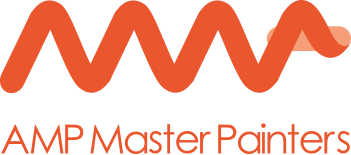1. Get the right advice:
If you are considering or have already made up you mind to do the job yourself but then using a tradesman, make sure you get the right advice from professionals at your local paint shop. Free professional advice is available in most local paint shops. You do not have to buy paintings and equipment at your local paint shop and you may decide to buy at a large hardware store because they are likely to offer more competitive prices. But you are more likely to get good, honest, professional advice at your local shop. Many local paint shops have an interior designer / color coordinator on site to help customers with color matching and choices. Make sure you use take advantage of their services. It can make a huge difference to the end result.
2. Do not buy the cheapest painting equipment:
If you are going to do the job yourself make sure you buy decent quality equipment. Painting equipment is available in a range of quality and prices. Avoid buying the cheapest you can find. For an extra few dollars you can buy better quality equipment such as brushes to ensure a good finish.
3. Surface preparation:
Ask any professional he'll tell you that surface preparation is one of the most important aspects of painting. When you buy equipment remember to ask for equipment and materials to be used for surface preparation. You will most likely need sanding paper, timber filler, plaster filler (if painting plaster walls) etc. Before you start painting, make sure you spend some time preparing. Make sure the surface is clean, even and firm. Properly preparing for painting will result in a better finish and longerer results.
4. Oil or Water paints?
This is a question that is often coming up for DIY painters. Like everything else there are pros and cons with using oil or water based paints. Water based paintings are easier to apply and clean while painting. If you make a mistake and spill some paint it is easy to clean with a damp cloth. It is also easier to clean painting equipment when using water based paints. Oil based paints, while harder to clean and apply, are more durable and usually result in better finish. The right way to go is probably to use a combination of both. Use oil based paints for timber surfaces such as window and door frames. Use water based paints for painting plaster walls, dry walls, weather boards etc.
5. Painting myself or using a professional painters?
Well, only you know the ultimate answer! House painting, unlike many other trades, is fairly easy to master. If your only home improvement task is painting and you are trying to save some money or just like the thrill of DIY then by all means do it yourself. If are embarking a large renovation or building a new house and are using professionals to do most of the work, painting is most likely a very
Article originally published at Source by Ross Yahalom


You must be logged in to leave a reply.